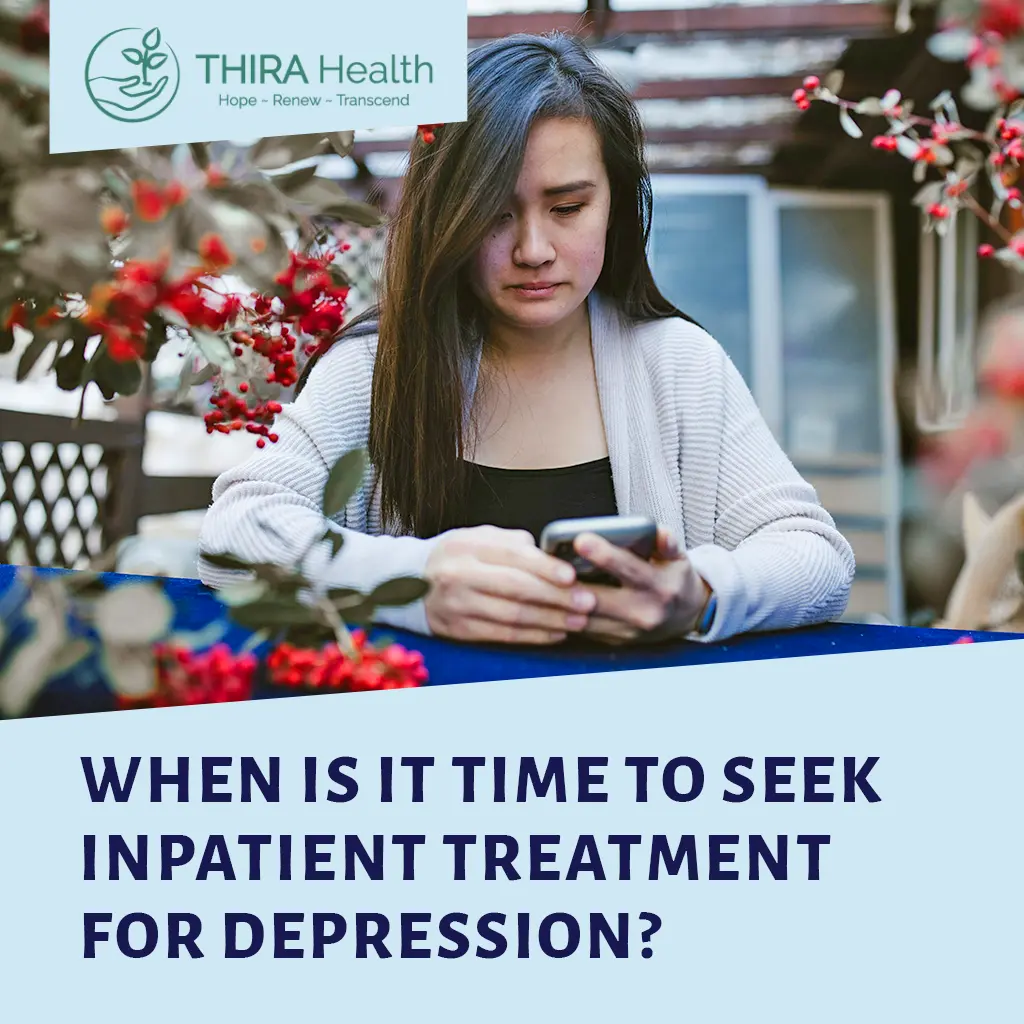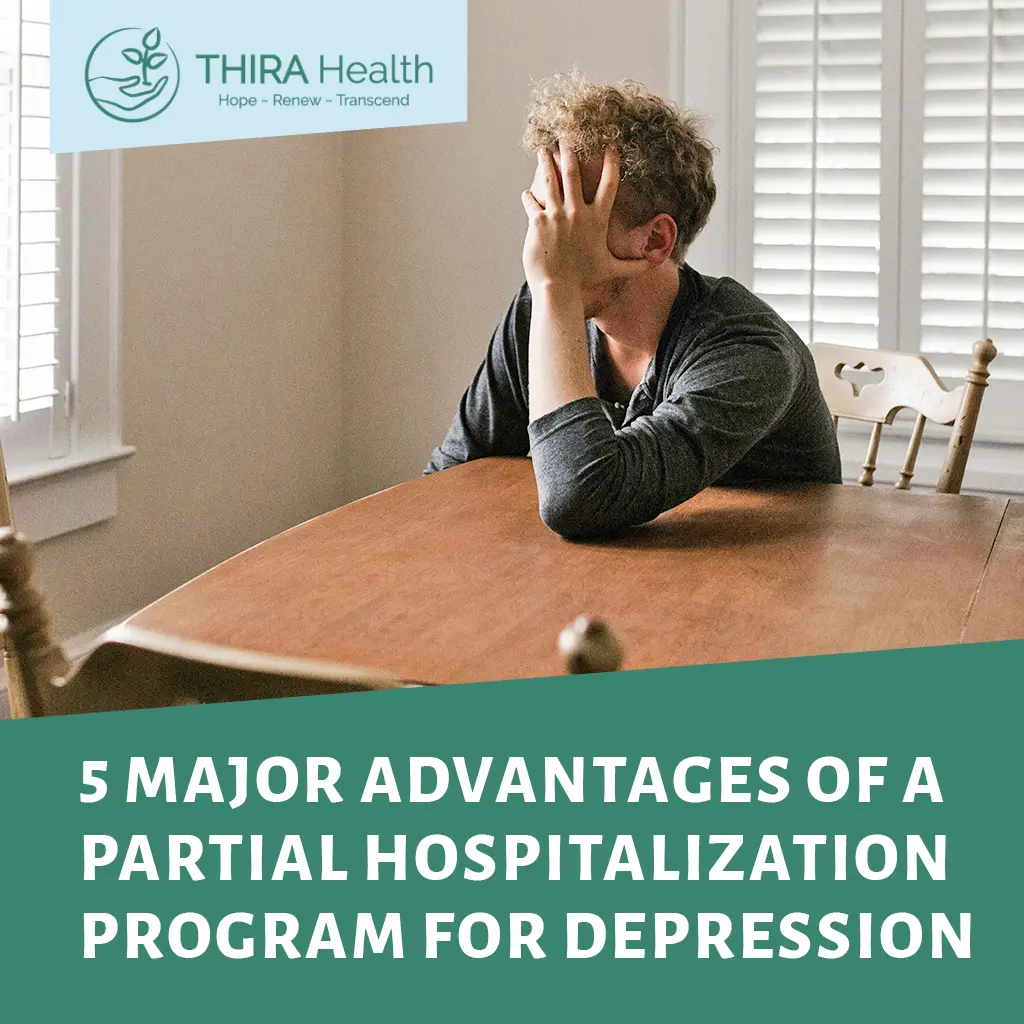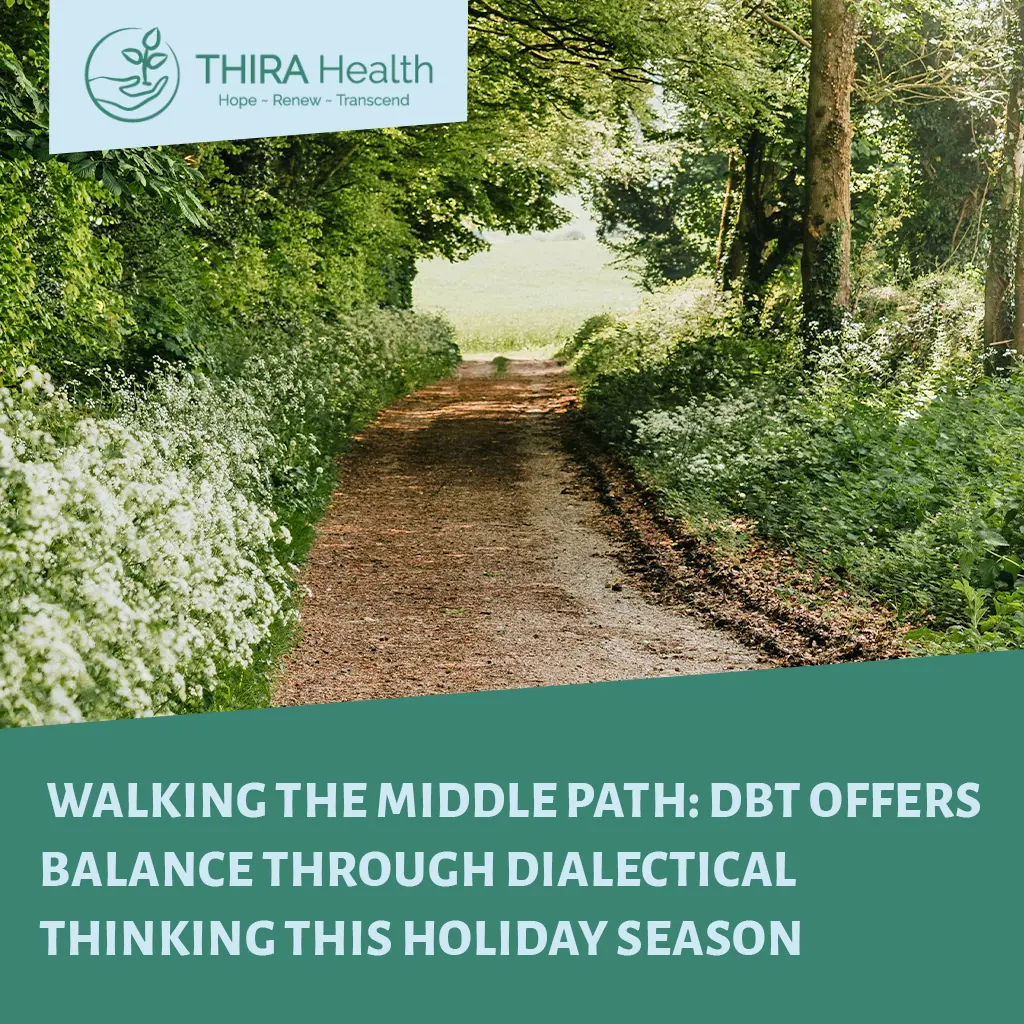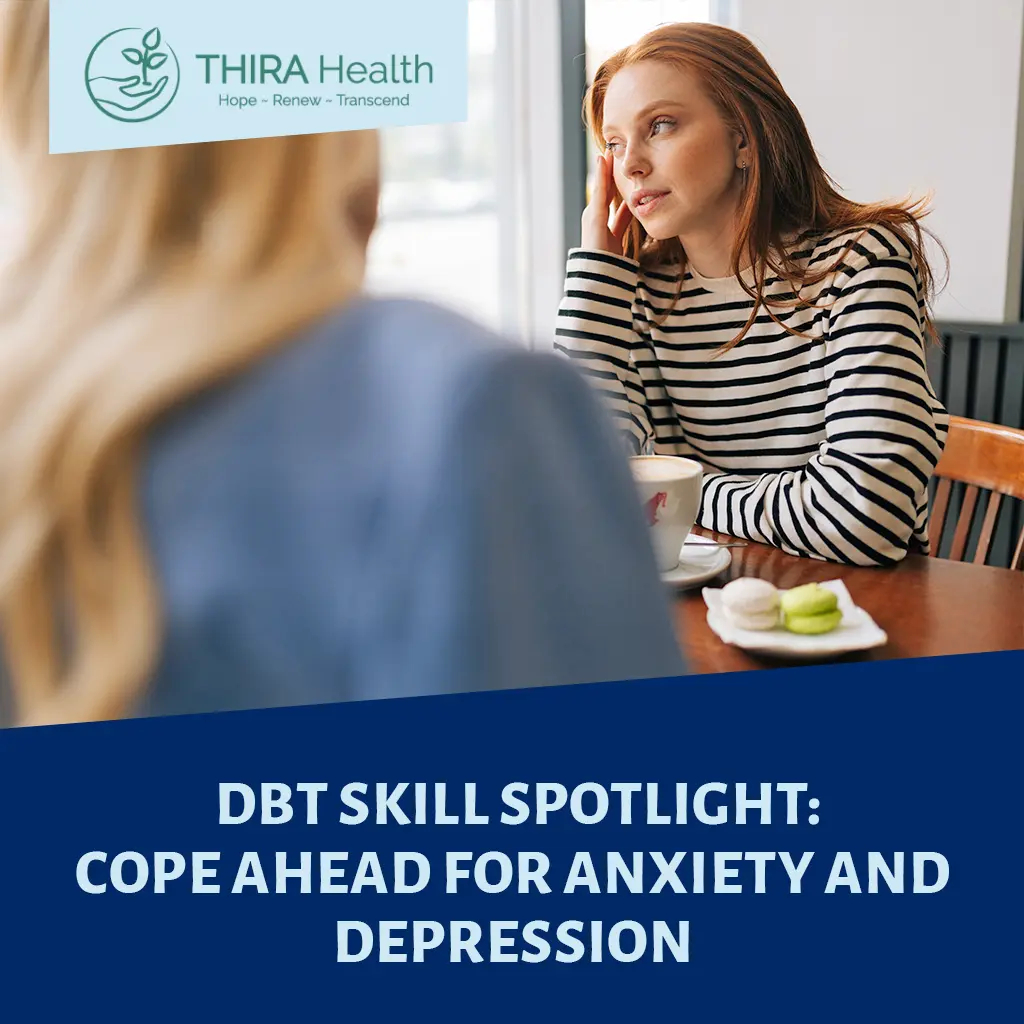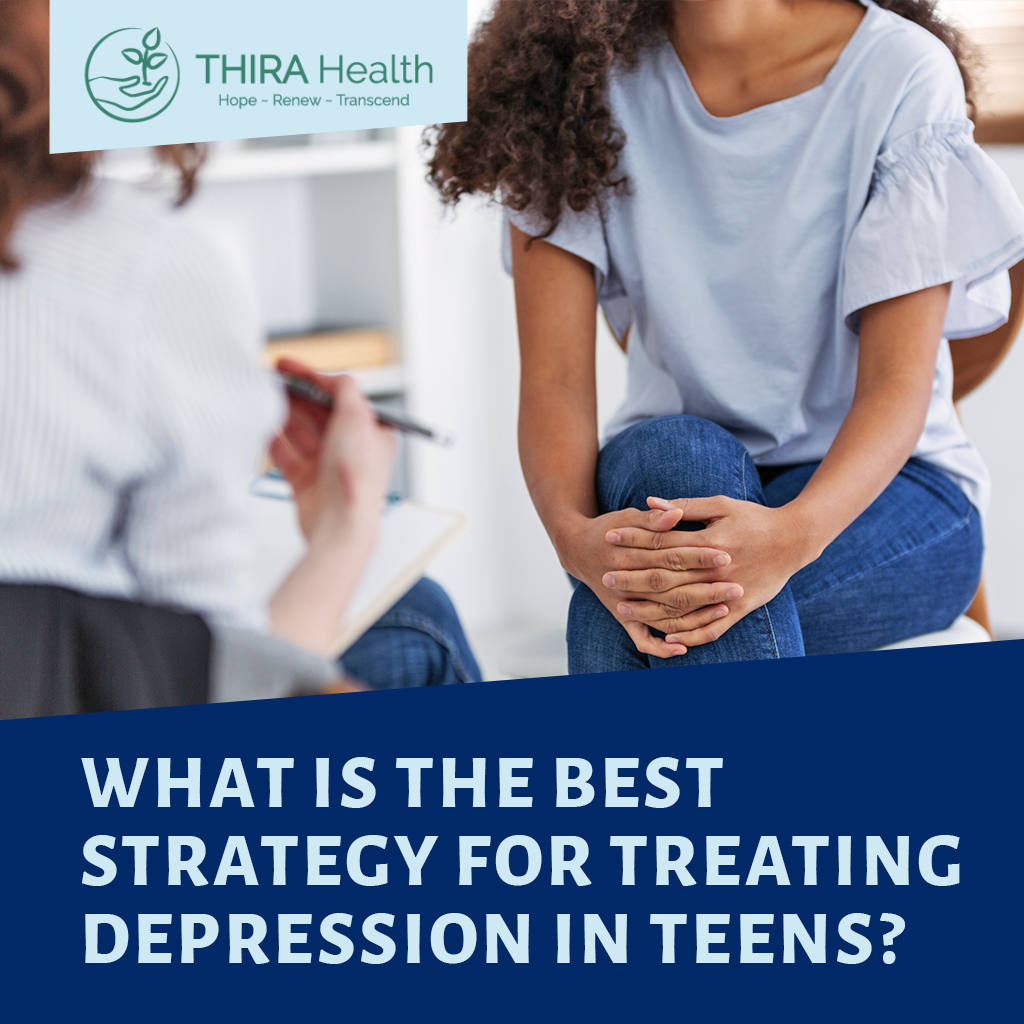Having a mood disorder can be difficult to navigate, especially when there is a lot of misinformation and myths surrounding it. Many of these myths are surrounding borderline personality disorder (BPD), anxiety, or depression treatment, making people question if they are the right candidate if it will work for them, and what even is a treatment option for them. It’s also possible that you found yourself here looking for answers about how to support your friend or loved one with BPD, anxiety, or depression.
At THIRA Health, we offer intensive outpatient treatment for women and teen girls dealing with these mood and personality disorders, but believe that quality treatment begins by busting myths and offering correct information. In this blog, we will dispel some myths related to BPD, anxiety and depression treatment and provide you with evidence-based options and information to help point you in the right direction.
Borderline Personality Disorder Treatment Myths
Myth 1: BPD behavior is just attention seeking and should be ignored
BUSTED: The behaviors often associated with BPD (suicidal ideation, self-harming, impulsivity) are not attention seeking behaviors and ignoring them can be fatal. Myths like this perpetuate a negative stigma around an already widely misunderstood diagnosis. Dialectical Behavior Therapy (DBT) is an evidence-based treatment specifically developed for BPD. It is effective in treating the underlying causes of these behaviors and aims to teach emotional regulation and distress tolerance skills so an individual with BPD can live a fulfilling life without daily interruptions of these behaviors.
Myth 2: BPD only affects women
BUSTED: Because BPD is such a stigmatized diagnosis and is often misunderstood as someone being “difficult” or “emotional,” there is a trend of more females being diagnosed than males due to stereotypes and biases. The truth is that BPD can affect both males and females and everyone needs access to quality treatment. At THIRA Health, we specialize in BPD intensive outpatient treatment for women and teen girls, as well as gender nonconforming individuals.
Anxiety Treatment Myths
Myth 1: The best coping skills for anxiety are distraction techniques.
BUSTED: Some people believe that distraction techniques or self-medication will make anxiety disappear. While it’s true that these tactics may help you in the short term, in reality, they do nothing to help you chip away at the source of anxiety within you. Numbing yourself through alcohol, sleep, or a food or Netflix binge are not going to provide you with any long term relief. Distraction coping skills are only helpful to you when paired with coping skills that allow you to process and practice a different outcome in the moment of your stress.
Myth 2: Medications for anxiety are addictive so you shouldn’t seek treatment.
BUSTED: While it’s true that anxiety medications, namely Benzodiazepines, are incredibly addictive, any medication can be abused, and it isn’t guaranteed that an anti-anxiety med will end up a part of your treatment plan when in intensive outpatient treatment for women. Typically, anxiety treatment is most successful when medication management is combined with therapy and the thoughtful and experienced medical professionals at THIRA Health are interested in creating a sustainable recovery plan for you, not just pushing pharmaceuticals. The most important part of treatment at THIRA is learning the skills available through Dialectical Behavior Therapy (i.e. mindfulness, distress tolerance, emotion regulation and interpersonal effectiveness), and using those skills to build up a defense against anxiety.
Myth 3: If you have an anxiety disorder, it is important to avoid stress and situations that make you feel “stressed”
BUSTED: Anxiety that is managed and treated should not regularly interfere with daily life. Treatments such as Dialectical Behavior Therapy (DBT) can help you learn valuable coping skills for your anxiety, and help you rethink or problem solve anxious thoughts so your anxiety does not compromise your quality of life. Through distress tolerance skills, in particular, you will learn many in-the-moment techniques for dealing with stress, and the other DBT skills will allow you to find a measured approach to accept and deal with the causes of your stress.
Depression Treatment Myths
Myth 1: Depression only happens when something bad happens in your life, such as a breakup or the death of a loved one
BUSTED: Depression is one of the most prevalent mental health diagnoses in the US in adults aged over 18. Often, there is no one event that directly leads to depression, which can contribute to the frustration of the diagnosis. Depression is more than the typical response someone has in the event of a break up or death of a loved one, which is grief and a “normal” reaction for these circumstances. While people who are genetically predisposed to depression can be at risk for developing depression following a stressful life event, their grief response does not always qualify for a diagnosis or depression treatment.
Myth 2: Antidepressants will change your personality so you shouldn’t seek out depression treatment
BUSTED: This is a widespread myth that often serves as a barrier to people receiving the depression treatment they need. First, medications are not always recommended in the when you’re receiving quality intensive inpatient treatment for women and teen girls. Second, studies reveal that there are no links between antidepressants and altering personality. Antidepressants target chemical imbalances in your brain that contribute to the symptoms you feel of depression and are not scientifically proven to alter personality traits.
Begin BPD, Anxiety, or Depression Intensive Outpatient Treatment for Women Today
It’s important to have the right information when seeking treatment for mood and personality disorders like BPD, anxiety, and depression. At THIRA Health, we offer intensive outpatient treatment for women and teen girls with these conditions, with a focus on dispelling myths and providing evidence-based options. By understanding the truth about these disorders and the available treatments, we can offer effective and sustainable solutions for those who need them. If you or a loved one is struggling with BPD, anxiety, or depression, don’t hesitate to reach out to us at THIRA Health for quality treatment and support. Together, we can work towards a brighter and healthier future.




